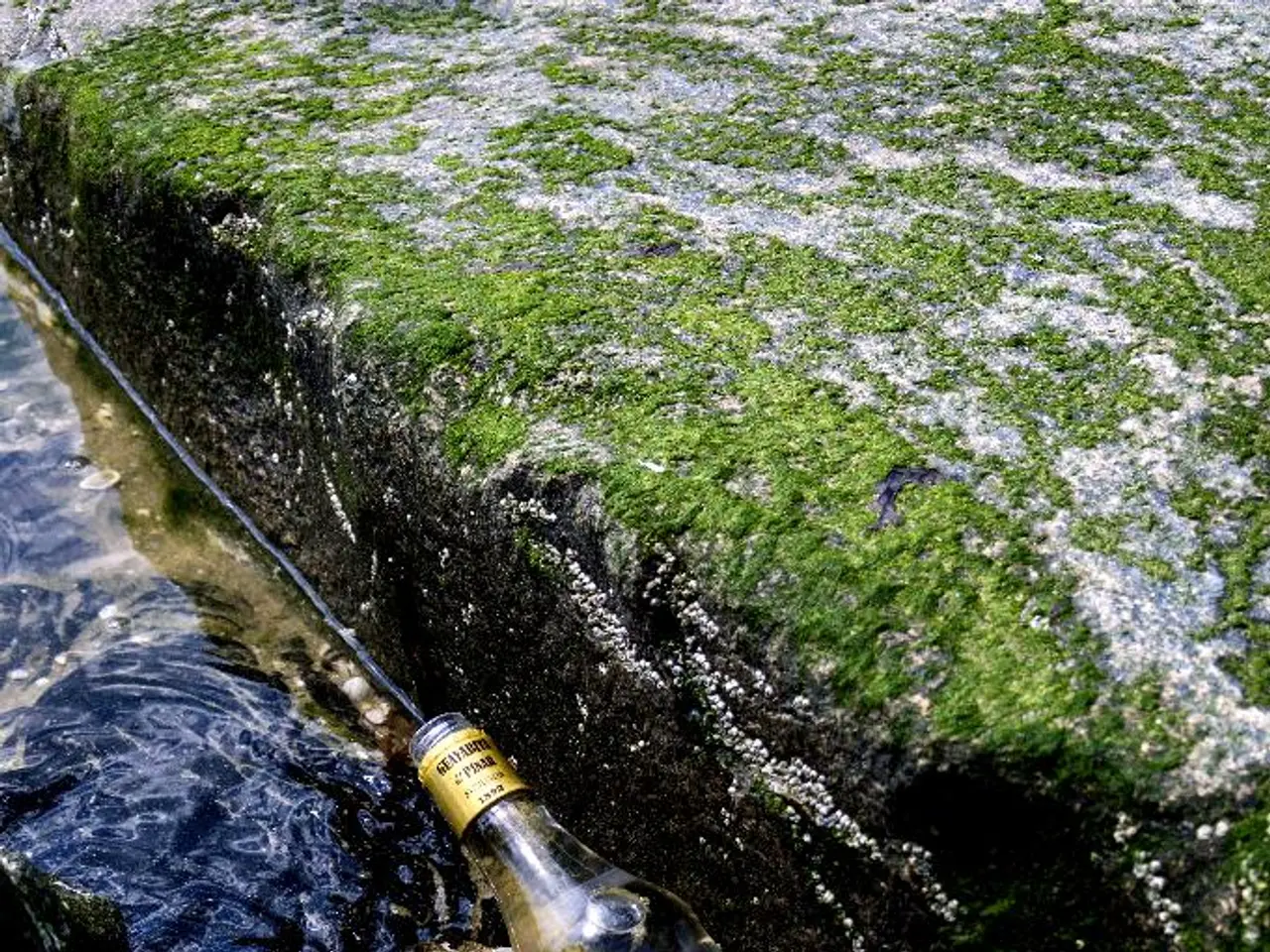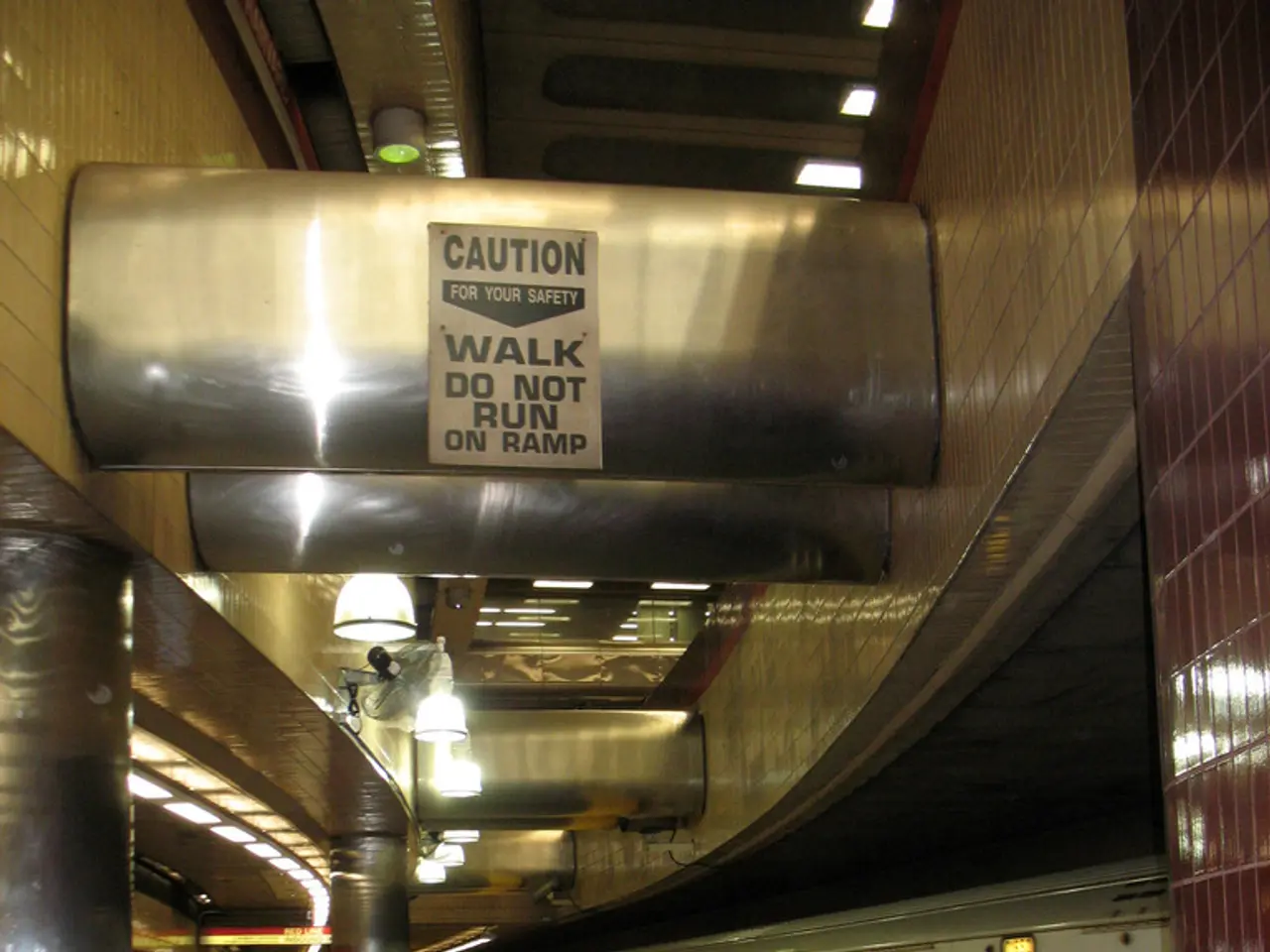Nestlé alerts consumers in Germany about the ongoing scrutiny concerning their mineral water products
Nestlé, the multinational food and beverage corporation, is currently under investigation in France for the improper handling of its mineral water. The controversy revolves around the company's use of unauthorized filtering methods for natural mineral waters, such as microfiltration, activated carbon filters, and ultraviolet (UV) filters, in brands like Perrier, Vittel, Contrex, and Hépar [1][2][3].
The investigation was initiated following a complaint from consumer rights group Foodwatch, prompting French authorities to raid Nestlé's headquarters near Paris as part of the evidence-gathering process [1][2]. The use of these methods is considered illegal under French regulations, leading to fines and a mandate for compliance [1][4].
Nestlé has acknowledged the issue and claimed to have removed illegal filters, with plans to install new systems that meet regulatory standards. For instance, a new microfiltration system has been installed at the Perrier plant in Vergèze [4].
The implications of this scandal could extend beyond France, potentially impacting consumer trust in Nestlé globally, including in Germany. The situation may also lead to increased scrutiny of Nestlé's practices in other countries, potentially affecting how the company is regulated and monitored in Germany.
However, it is important to note that only the brands San Pellegrino and Acqua Panna, which are not affected, are distributed in Germany. No natural mineral water from French production is sold in Germany [5].
Chris Methmann, the managing director of Foodwatch Germany, made a statement regarding the ongoing controversy surrounding Nestlé mineral water in France. He described the situation as a clear case of food fraud [6].
Nestlé Waters confirmed the searches and expressed regret for the situation. The company assured German customers that they can continue to purchase Nestlé mineral water products without worry [7].
Sources: [1] https://www.reuters.com/business/retail-consumer/nestle-faces-probe-over-alleged-use-illegal-filters-french-mineral-water-2021-02-12/ [2] https://www.foodwatch.de/presse/nestle-wassert-untersuchung-in-frankreich-ueber-verdacht-von-illegal-filterung-von-mineralwasser/ [3] https://www.dw.com/en/nestle-faces-probe-over-alleged-use-of-illegal-filters-in-french-mineral-water/a-57488671 [4] https://www.reuters.com/business/retail-consumer/nestle-takes-measures-ensure-compliance-french-mineral-water-probe-2021-02-16/ [5] https://www.dw.com/en/nestle-faces-probe-over-alleged-use-of-illegal-filters-in-french-mineral-water/a-57488671 [6] https://www.foodwatch.de/presse/nestle-wassert-untersuchung-in-frankreich-ueber-verdacht-von-illegal-filterung-von-mineralwasser/ [7] https://www.dw.com/en/nestle-faces-probe-over-alleged-use-of-illegal-filters-in-french-mineral-water/a-57488671
Community policy regarding the oversight of multinational corporations, such as Nestlé, may need to be reevaluated in light of this mineral water controversy, considering its potential impacts on consumer trust and industry regulations. In developing employment policy and vocational training programs in this sector, ensuring adherence to regulatory standards and ethical practices could ensure financial stability and business growth.




